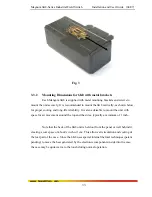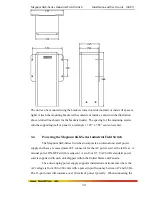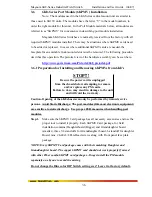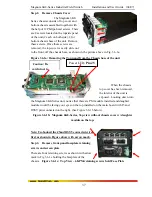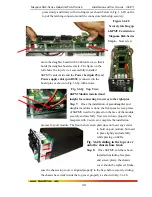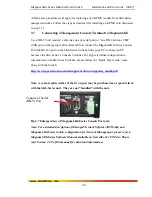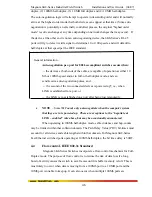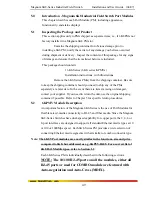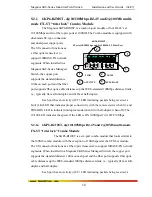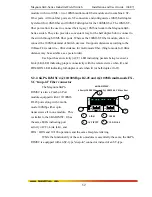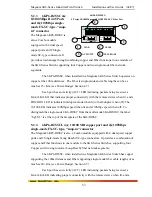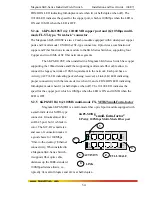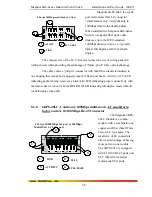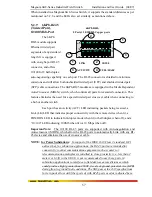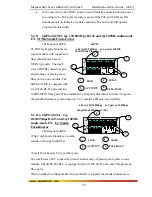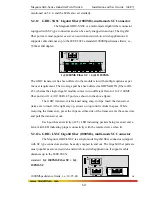
Magnum 6K8-Series Industrial Field Switch Installation and User Guide (04/07)
46
www GarrettCom com
.
.
duplex, (2) 100Mb half-duplex, (3) 10 MB full duplex and (4) 10 MB half-duplex.
The auto-negotiation logic will attempt to operate in descending order and will normally
arrive at the highest order mode that both devices can support at that time. (Since auto-
negotiation is potentially an externally controlled process, the original “highest order
mode” result can change at any time depending on network changes that may occur). If
the device at the other end is not an auto-negotiating device, the 6K8-Series’s RJ-45
ports will try to detect its idle signal to determine 10 or 100 speeds, and will default to
half-duplex at that speed per the IEEE standard.
General information -
Auto-negotiation per-port for 802.3u-compliant switches occurs when:
-- the devices at both ends of the cable are capable of operation at either 10
Mb or 100Mb speed and/or in full- or half-duplex mode, and can
send/receive auto-negotiation pulses, and . . .
-- the second of the two connected devices is powered up*, i.e., when
LINK is established for a port, or
-- the LINK is re-established on a port after being lost temporarily.
•
NOTE
– Some
NIC cards only auto-negotiate when the computer system
that they are in is powered up. These are exceptions to the “negotiate at
LINK – enabled” rule above, but may be occasionally encountered.
When operating in 100Mb half-duplex mode, cable distances and hop-counts
may be limited within that collision domain. The Path Delay Value (PDV) bit-times must
account for all devices and cable lengths within that domain. For Magnum 6K8-Series
Fast Ethernet switched ports operating at 100Mb half-duplex, the bit time delay is 50BT.
4.4
Flow-control, IEEE 802.3x Standard
Magnum 6K8-Series Switches incorporate a flow-control mechanism for Full-
Duplex mode. The purpose of flow-control is to reduce the risk of data loss if a long
burst of activity causes the switch to save frames until its buffer memory is full. This is
most likely to occur when data is moving from a 100Mb port to a 10 MB port and the
10Mb port is unable to keep up. It can also occur when multiple 100Mb ports are


